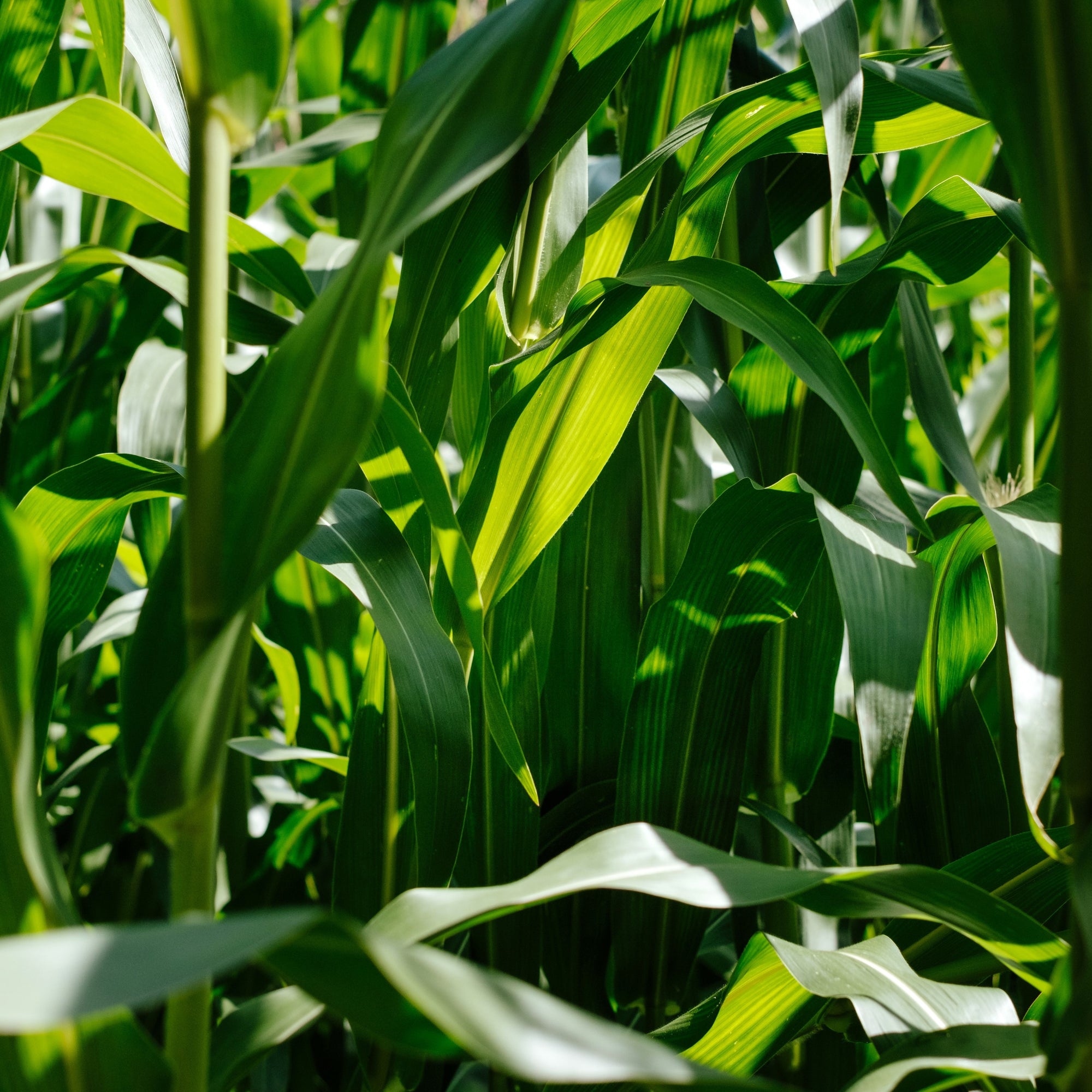What's the Function of Zinc (Zn) in Plants?
•Posted on August 29 2018

If you're like most home gardeners, you're always looking for ways to keep your plants thriving and disease free without resorting to chemical fertilizers.
Even many commercial growers want to lessen their impact on the environment by finding natural ways to improve their yield and quality of their crops.
It's often not as easy as it sounds to be an organic gardener or farmer. One good resource that can help boost your vegetable production and keep your plants healthy without harming the environment is zinc sulfate.
What is Zinc?

Zinc is one of eight micronutrients. This micronutrient is essential for plant growth and development. Without adequate zinc, plant vitality suffers and so do produce yields.
According to AG Web's, Farm Journal magazine, low zinc levels can cause corn, which is particularly vulnerable to low zinc levels, to yield 15 to 20 bushels fewer corn ears per acre and, those ears are likely to be smaller than they would be if the soil had adequate zinc.
How Zinc Works in Plants
Zinc (ZN) is a key component of many proteins and enzymes. It contributes to a number of important plant functions, such as growth hormone production and internode elongation.
Without zinc, you'll likely notice a number of issues with your plants, including:
- Stunted Growth
- Brown spots on Upper Leaves
- Distorted Leaves
Several things can cause soil to be naturally low in zinc:
- Low Organic Matter Content
- A High pH Level
- Restricted Root Growth (because of things like an extremely clay-based soil or a high water table)
- Low Soil Level
- High Phosphorus Level in Soil
Very few soils have an overabundance of zinc; most are either deficient or have normal levels.
For home gardens, zinc is often removed from the soil in new home construction, when the topsoil is removed to facilitate the build.
Ideally, zinc should be applied with your initial fertilizer, just after you plant your vegetables. Alternately, you can wait a few weeks to see if your plants show signs of a zinc deficiency.
However, if you wait until the plants are half grown, it will be too late for the plants to absorb the zinc through the ground before the plant starts producing vegetables.
Benefits of Using Greenway Biotech's Zinc Sulfate Fertilizer

Zinc sulfate helps to prevent low yields, spotted leaves and stunted growth. It can also be used as a natural fungicide.
Benefits of using zinc sulfate include its relatively low cost and the fact that it is water soluble and, thus, is distributed into the soil quickly.
Zinc is also time efficient since a single application will treat plants and crops for two to three years.
Zinc offers benefits to humans, too. According to the World Health Organization, more than 30 percent of the world's population is zinc deficient. This can result in hair loss, acne and even nerve damage.
Adding zinc sulfate to your vegetable plants is an easy way to ensure that you and your family get the zinc you need in your diet.
Give yourself and your plants the nutrients they need by fertilizing with our water-soluble Zinc Sulfate so you both can function at your best.
Shop below!
Related Posts:
- What's the Function of Nitrogen (N) in Plants?
- What's the Function of Potassium (K) in Plants?
- What's the Function of Phosphorus (P) in Plants?
Comments
5 Comments
-

Posted by M.subbarayan. | October 14, 2020
-

Posted by Greenway Biotech | July 06, 2020
-

Posted by Justin | July 06, 2020
-

Posted by Anonymous | August 12, 2019
-

Posted by pravin Gulabrao nimbhorkar | August 12, 2019
Leave a CommentHow much quantity will be given for roof garden plantes and ten years aged. Coconut tree?
Justin: Thank you for your question! We are unaware of zinc sulfate being used to reduce soil salinity since its primary purpose from our store is being used as a fertilizer. We would suggest reaching out to an agronomist who can recommend a solution for your particular situation regarding your water irrigation. Thank you!
Is zinc sulfate effective on reducing salinity of soil? This is what my herbalist offered me to use. The water I use for irrigation has an EC of 2 and the soil is 6.0 . What should I do?
Pravin: Hello, thank you for your question! If the leaves of your plant are becoming yellow, one of the most common deficiencies is Nitrogen. However, to be sure what nutrient is causing these symptoms, we suggest you try testing your soil. We hope this helps! Please let us know if you have any other questions.
Why orange plants of leaf become light yelowish and fruits falling thats colur become yeloish what is th problem?